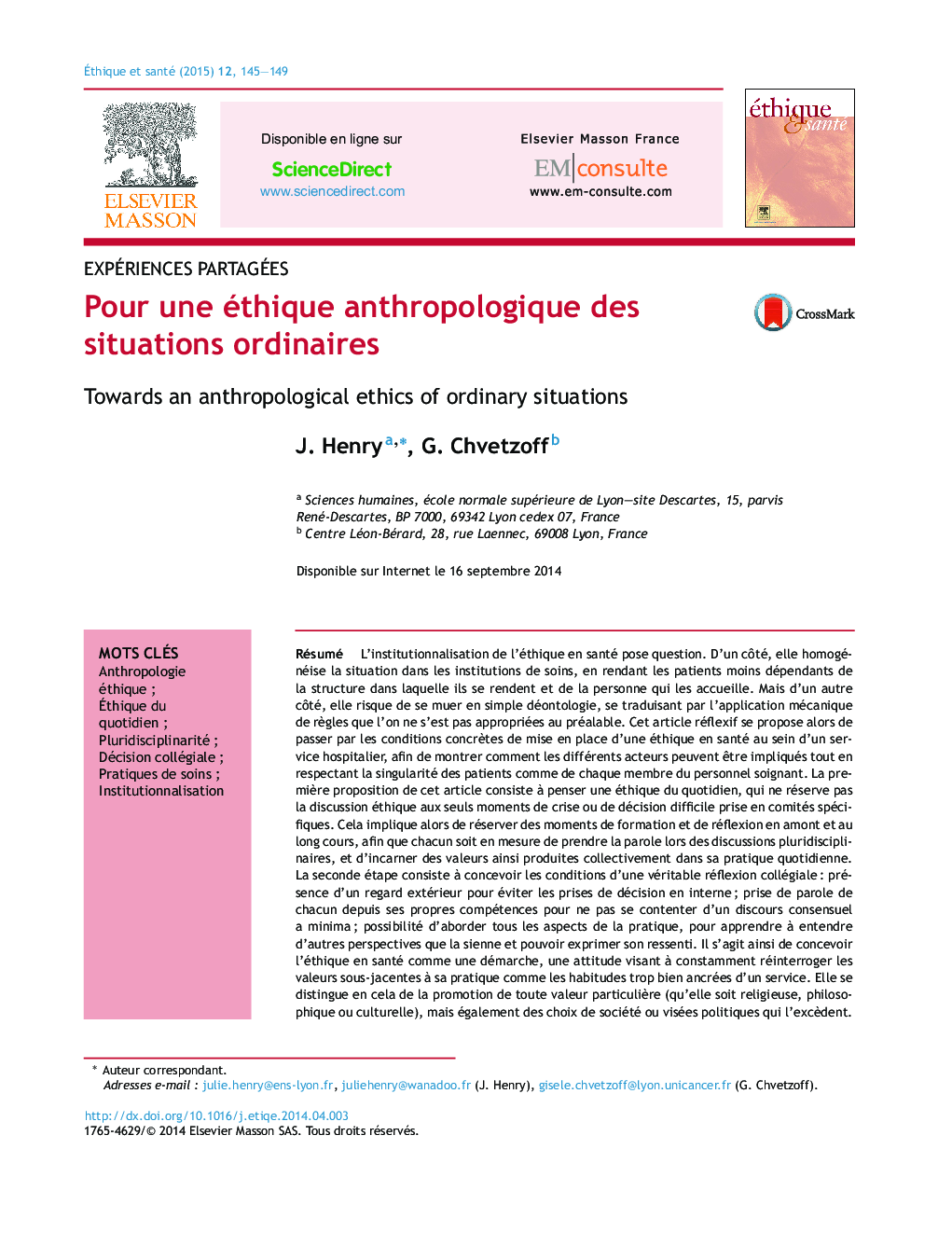| کد مقاله | کد نشریه | سال انتشار | مقاله انگلیسی | نسخه تمام متن |
|---|---|---|---|---|
| 1072490 | 949732 | 2015 | 5 صفحه PDF | دانلود رایگان |
عنوان انگلیسی مقاله ISI
Pour une éthique anthropologique des situations ordinaires
دانلود مقاله + سفارش ترجمه
دانلود مقاله ISI انگلیسی
رایگان برای ایرانیان
کلمات کلیدی
موضوعات مرتبط
علوم پزشکی و سلامت
پزشکی و دندانپزشکی
سیاست های بهداشت و سلامت عمومی
پیش نمایش صفحه اول مقاله

چکیده انگلیسی
The institutionalization of health ethics gives rise to numerous questions. On the one hand, this institutionalization tends to level the conditions in the different health care institutions by making the patients less dependent on the structures they engage in and on the people who receive them. On the other hand, however, ethics also runs the risk of becoming deontological and develop into the mechanical application of rules that have not been integrated by those who apply them. This article suggests how one can begin with the concrete conditions when putting into place a health ethics in the hospital sector, in order to show how the different agents can become involved while still respecting the singularity of both patient and care worker. The primary proposal of the article concerns the conception of an ethic of the everyday situation that does not limit ethical discussion to moments of crisis or for difficult decisions in specific committees. This implies reserving periods for both initial and long-term training and reflection so that everyone can have something to say in multidisciplinary discussions. This also allows for everyone to incarnate values that have been collectively produced through daily practice. Next, it is necessary to establish the conditions of a veritable reflection among colleagues, allowing for exterior viewpoints in order to prevent overly internal decision-making, not contenting oneself with a bare minimum of consensus, and learning to listen to other perspective than ones own and expressing his or her view. In this way, the aim is to understand health ethics as a way of proceeding, and as an attitude that consists in constantly questioning the underlying values of ones own practice and of habits that may have become too entrenched in a hospital unit. In this respect, this ethic does not promote any particular value (be it religious, philosophical or cultural) or any societal decisions or political aims. Helping a care worker making a decision also includes delimiting the range of the decisions that he will have to take and respecting his competence within that range. Hence, seeking out the questions where they arise, in the practices, and reflecting-in the sense of mirroring-on them while appealing to the richness human complexity between reason, affects, personal history, culture and values. This is the field of exercise and margin of action of an anthropological ethics of ordinary situations.
ناشر
Database: Elsevier - ScienceDirect (ساینس دایرکت)
Journal: Ãthique & Santé - Volume 12, Issue 2, June 2015, Pages 145-149
Journal: Ãthique & Santé - Volume 12, Issue 2, June 2015, Pages 145-149
نویسندگان
J. Henry, G. Chvetzoff,